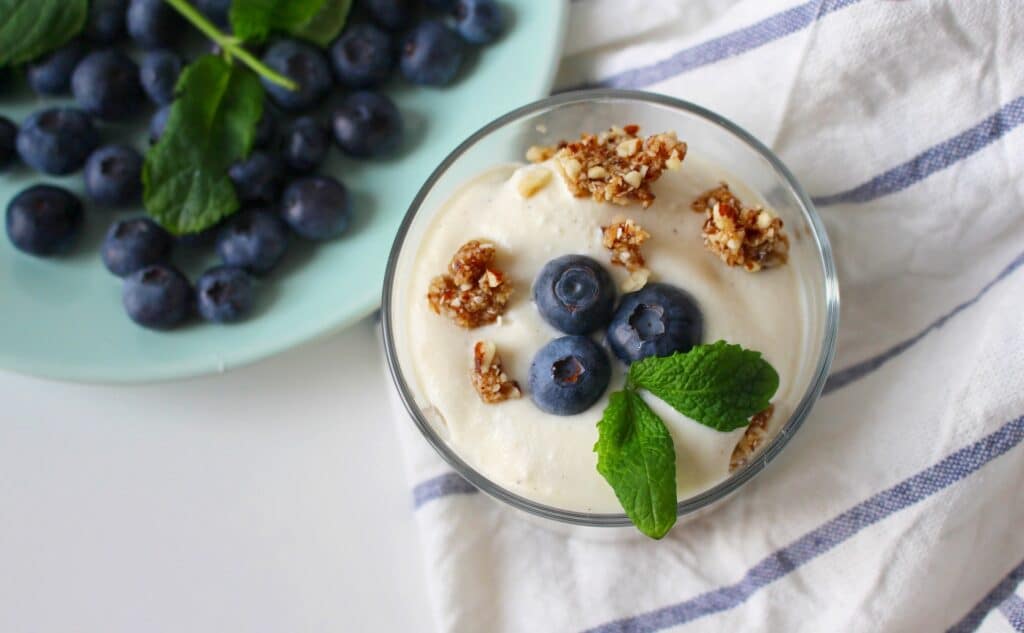We’re more conscious than ever about supporting our immune system.
Are you looking for practical, easy ways to keep your immunity strong without breaking the bank? When possible, it’s best to get essential vitamins and nutrients from real food first and then to supplement as needed.
It’s no secret that vitamins A, C, and D are crucial for strong immune function. Key minerals that also support immunity include selenium, iodine, magnesium and zinc. We’ll cover some of these nutrients in a follow up post, but today is zinc’s chance to shine – along with a couple of its friends. 🙂
The Many Vital Roles of Zinc in the Body
Zinc is a powerhouse that is crucial for proper functioning of our immune system. It is a master-mineral (along with magnesium) and is essential for more than 300 enzymatic reactions in the body. It’s also required for hormone production, wound healing, skin health, blood sugar regulation, cell division and so much more. Did you know that a diminished sense of smell and/or taste can also be symptoms of zinc deficiency?
Because zinc is not stored in our bodies for long periods of time, we need a consistent supply of it. And while we don’t need a large amount of it every day, it’s essential that we get enough zinc pulled into our cells for optimal health and immunity.
Foods High in Zinc
Fortunately, many foods are rich in zinc. A nutrient-dense diet based on a wide variety of foods is invaluable in keeping our resistance up. Here are some great ways to get zinc into your diet:
- Oysters
- Shellfish – lobster and crab
- Red meat – especially grass fed
- Pork
- Eggs
- Dairy – yogurt
- Sprouted legumes – beans
- Nuts – cashews, almonds and pine nuts
- Pumpkin seeds and hemp seeds
- Dark Chocolate – (can I get an amen!)
- Oatmeal
Recommended Amounts of Zinc
In addition to eating well, there are times when we still need to supplement in order to get sufficient amounts of zinc. For adults, the recommended daily dosage of elemental zinc is 10-30 mg per day – depending on age, gender, diet. (1,2).
Zinc Therapy in Dermatology: A Review
Zinc and its importance for human health: An integrative review
The most bioavailable forms of zinc are chelated forms. These include zinc picolinate, zinc orotate, zinc gluconate, zinc citrate, and zinc acetate.
Some supplements have high doses, as high as 40-50 mg. Too much zinc can cause a copper deficiency in the body and numerous side effects. It’s best not to exceed the upper tolerable limit of 40 mg of zinc per day. Remember that mega-doses of any supplement can be counterproductive and even harmful.
Zinc Ionophores
Ionophores are very cool. They are compounds that transport specific ions directly into our cells.
Today, we’re highlighting Ionophores that transport zinc into our cells. While the malaria medication hydroxychloroquine (whoever thought that mouthful would become a household name?) is an effective pharmaceutical zinc ionophore, here we’re going to focus on food-based zinc ionophores. Two of these very special compounds are EGCG from Green Tea and quercetin from multiple foods.
What makes EGCG and quercetin so stellar is that they open the gate for zinc to get INSIDE our cells which increases zinc uptake dramatically. Zinc then gets to do its job of stopping viral replication in its tracks. This prevents the virus from hijacking our cells’ command centers and making more and more copies of itself. Bottom line: combining zinc with EGCG and quercetin makes for even more powerful immune support.
How to Get EGCG and Quercetin From Food
Earlier we mentioned the best way to get EGCG in your diet, did you catch it? Right! Green tea. So how about quercetin, you ask?
Foods Rich in Quercetin
- Elderberries
- Cranberries
- Blueberries
- Blackberries
- Leafy vegetables – kale, romaine, spinach, red leaf lettuce
- Broccoli
- Onions – especially red
- Hot peppers – especially green
- Apples – especially with red skin
- Grapes
- Pomegranate
- Black tea
- Green tea (bonus since it’s a great source of EGCG too!)
- Red wine
- Herbs and spices – cilantro, rosemary, ginger, cloves, cayenne, paprika, peppermint
Continued Health
There are so many options for getting zinc, EGCG and quercetin from our diets. For a breakfast packed with all three of our superstars, try plain Greek yogurt topped with pumpkin or hemp seeds, slivered almonds, blueberries, shaved dark chocolate and a cup of green tea, along with a side of red grapes.
In March 2020, Integrative Wellness Center posted on social media about the benefits of a healthy diet and lifestyle. These practices support a healthy immune response, not only during the pandemic, but in our day-to-day lives as well.
Getting plenty of rest, exercising daily, drinking plenty of filtered water, managing stress, proper self-care, ditching the sugar and refined starches and eating a nutrient-dense diet are all key in immune health. Taking an Epsom salts bath is another fantastic way to rid your body of toxins while absorbing much-needed magnesium through your skin.
To check out our posts, click here for Instagram and here for Facebook.
Talk soon!
Lisa
Roohani N, Hurrell R, Kelishadi R, Schulin R. Zinc and its importance for human health: An integrative review. J Res Med Sci. 2013;18(2):144‐157.
Gupta M, Mahajan VK, Mehta KS, Chauhan PS. Zinc therapy in dermatology: a review. Dermatol Res Pract. 2014;2014:709152. doi:10.1155/2014/709152
Please note: The information on this website has not been evaluated by the Food & Drug Administration or any other medical body. We do not aim to diagnose, treat, cure or prevent any illness or disease. Information is shared for educational purposes only. You must consult your doctor before acting on any content on this website, especially if you are pregnant, nursing, taking medication, or have a medical condition.
